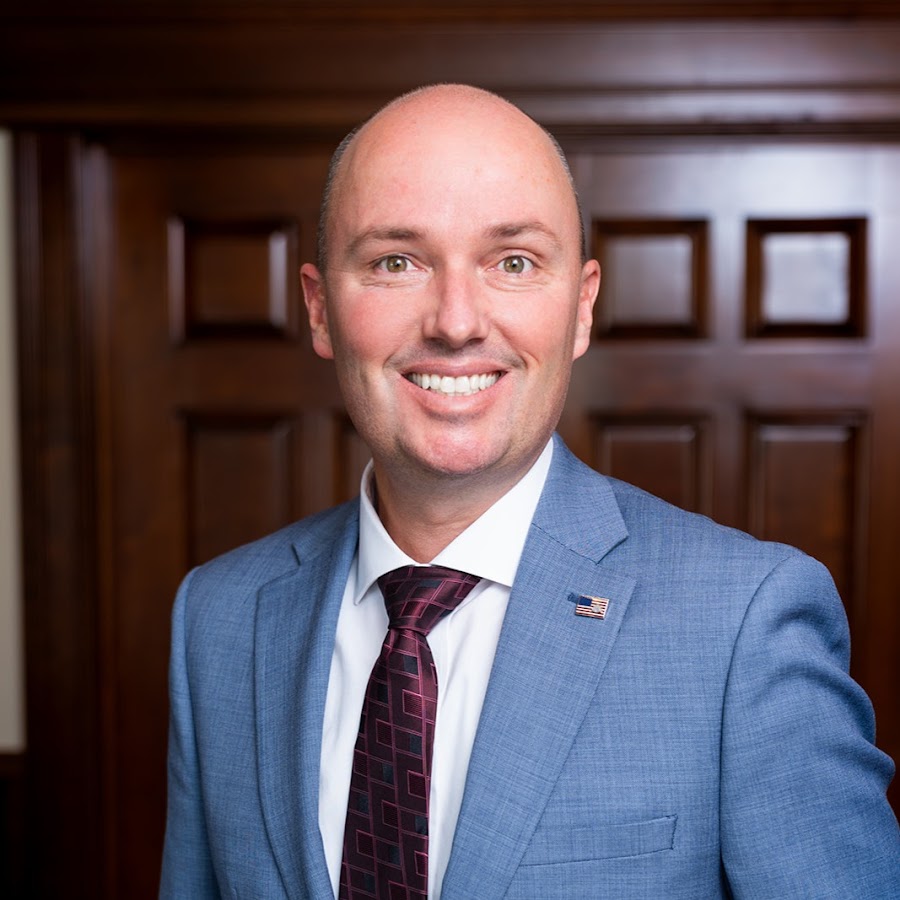Governor Spencer Cox of Utah (R) has positioned himself as a facilitator between the ideological factions of the political spectrum. Central to his agenda as vice-chair of the National Governors Association is the initiative titled “Disagree Better,” aimed at transcending what he terms as the “endless bickering” characteristic of contemporary political discourse, and instead fostering constructive disagreement conducive to problem-solving. This initiative, underscored by his efforts to persuade fellow governors to participate in joint campaign advertisements with their adversaries, embodies a laudable aspiration.
However, amidst the optimism his conciliatory approach engenders, a critical inquiry arises: to what extent does Cox’s initiative entail substantive measures to counter misinformation, and how much of it is a strategic maneuver tailored for his politically divided constituency’s favor during re-election campaigns?

At the “Culture Builders Summit” held in Sandy, Utah this year, Spencer Cox shared the stage with SHRM CEO Johnny Taylor. The two spoke about Spencer Cox’s bridge-building initiative and everything sounded pretty vanilla until Cox presented his version of how culture wars play out in US workplaces. Cox’s portrayal insinuates a deep-seated aversion towards ideological adversaries among left-leaning individuals, ostensibly rooted in identity-based animosity:
From the Right what I hear is, ‘you just want us to comprimise, and give in, and just give up on our principles’… to which I respond: ‘definitely not.’… From the Left I hear something a little different: ‘why would I engage with those people?’
Gov. Spencer Cox (R-Utah) at Culture Builders Summit, March 2024
Such instances serve as a stark reminder of the inherent politicking ingrained within political discourse. Governor Cox’s conciliatory rhetoric, juxtaposed with a perceived lack of substantive policy initiatives, invites scrutiny. The narrative of extending an olive branch only to be rebuffed by ideological opponents could potentially obfuscate underlying deficiencies in Cox’s approach. This narrative may inadvertently bolster his political standing while absolving him of accountability for failing to bridge ideological divides effectively.
Furthermore, Cox’s reluctance to confront certain contentious issues within his own party, particularly concerning former President Donald Trump’s influence and legal entanglements, raises questions about the depth of his commitment to his professed principles. His emphasis on electoral victories rather than principled governance further underscores concerns regarding the sincerity of his reconciliatory overtures.
From a personal standpoint, as someone who has navigated Utah’s professional landscape for over two decades, the prevailing conservative ethos often contrasts starkly with my own liberal inclinations. Instances of workplace discrimination and casual bigotry, such as racialized jokes made by executives, underscore the pervasive challenges faced by individuals belonging to marginalized groups within conservative-dominated environments.
Governor Cox’s portrayal of Utah’s conservative constituency as unwaveringly principled may overlook the lived experiences of individuals who encounter discrimination and marginalization within these circles. The absence of acknowledgment or meaningful engagement with these realities casts doubt on the depth of Cox’s understanding of the diverse perspectives within his constituency.
While Governor Cox’s initiative to foster constructive disagreement is commendable in principle, its efficacy hinges on substantive policy interventions and a genuine commitment to addressing underlying divisions. Without such measures, the risk of his conciliatory rhetoric serving as a mere veneer for political expediency remains ever-present. A more nuanced understanding of the complexities inherent within Utah’s socio-political landscape is imperative for advancing genuine reconciliation and inclusive governance.
A Personal Aside
I’ve worked in Utah workplaces for over 25 years. I typically vote Democrat and I hold ideals such as equity and justice for everyone as higher priorities than the optimization of any macro or micro economic system or project. In fact, I believe that a concerted social approach to equity and justice would help the economic engine. That’s not been the opinion of an overwhelming majority of people I’ve worked with in Utah, and I’ve gotten used to it. The overwhelming opinion amongst Utahns is that, if everyone were ‘free’ to maximize their own wealth, we wouldn’t have all of these problems of poverty (and if there are poor people under such a system, they only have themselves to blame). My disagreements withstanding, I get their perspective. I’ve worked closely with people from Republican perspectives, not because I’m extra benevolent, but simply because I’m usually the only executive in the company that holds somewhat liberal views. I have no choice, I must work closely with republicans and I must find a way to make it work.
Do I sometimes feel loathing and disgust at work? Absolutely, like the time my boss, the CEO of the company and an outspoken republican, had a running gag with the supply chain manager on how they could pronounce the word ‘snickers’ to sound like a certain racial slur by substituting some letters. This running gag went on for months. I protested against it and it wasn’t long before I was let go. Years later the owner of the company came to me to apologize for the CEO’s behavior. To give a glimpse into the quality of this human being, this CEO was later caught by the FBI and recently served prison time for child porn.
I later worked for another CEO in Utah that bragged about his ties in the Republican Party and also constantly made jokes about my Asian background. Usually the jokes were meant to compliment me, but these types of jokes end up serving to dehumanize the subject of them. The punchline of the joke is that it’s not me that’s had to work at being good at IT, it’s the Asian in me that’s naturally good at it.
These are the people that I’ve worked for that vote republican and who Cox claims are incredibly principled, so much so, that compromising with someone like me would bend those principles.
Of course, these are all just personal anecdotes, and that’s how this pervasive work culture in Utah works. Everyone who lives on the fringes as a non-white, non-Mormon, non-republican experiences these things in an immensely private setting. We don’t have a network where we can commiserate with each other. We most certainly do not have a Governor who knows the first thing about what people like me experience at work.





